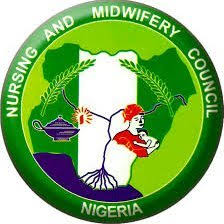MLSCN Commends Examination Markers for Upholding Standards in Foreign Graduates Registration Qualifying Examination
Abuja, Nigeria – August 20, 2025, 10:33 PM WAT – The Medical Laboratory Science Council of Nigeria (MLSCN) has extended its heartfelt appreciation to the dedicated team of examination markers for their exemplary commitment and professionalism during the recently concluded Foreign Graduates Registration Qualifying Examination (FGRQE). Held from August 5 to 7, 2025, across seven centers nationwide, the examination is a critical gateway for foreign-trained medical laboratory science graduates seeking registration and licensure to practice in Nigeria. The Acting Registrar/Chief Executive Officer of MLSCN, Dr. Donald I. Ofili, personally commended the markers during a special event in Abuja, emphasizing their pivotal role in maintaining the integrity and credibility of the council’s regulatory functions.
The FGRQE, a rigorous assessment designed to evaluate the competence of foreign-trained professionals, reflects Nigeria’s growing efforts to standardize its healthcare workforce amid a global shortage of skilled medical personnel. With the Nigerian healthcare system facing significant challenges, including a skilled health worker (SHW) density of just 1.83 per 1,000 population—well below the World Health Organization’s recommended 4.45 per 1,000—the need to integrate and regulate foreign graduates has become increasingly urgent. According to the Minister of Health’s 2024 report, the number of licensed medical laboratory scientists in Nigeria rose by 2% to 66,241, a modest but notable increase attributed to initiatives like the FGRQE.
Dr. Ofili highlighted the markers’ diligence in ensuring fairness, transparency, and integrity throughout the marking process. “Their work is the backbone of our ability to uphold the highest standards in medical laboratory practice,” he stated during the event, which featured a gathering of council officials and examination staff. The examination, conducted under strict supervision, tested the practical and theoretical knowledge of candidates, many of whom underwent a mandatory 12-month training period in approved institutions to align their skills with Nigerian equivalence standards.
The FGRQE comes at a time when Nigeria is grappling with a significant exodus of healthcare professionals. Between 2008 and 2021, an estimated 36,467 Nigerian doctors migrated to the United Kingdom alone, a trend driven by political instability, economic challenges, and poor working conditions, as detailed in a 2023 study published in the Journal of Global Health. The migration of skilled health workers (SHWs) has exacerbated the country’s healthcare workforce crisis, prompting the MLSCN to strengthen its regulatory framework to both retain talent and integrate competent international graduates.
The examination aligns with global best practices, drawing parallels with the Educational Commission for Foreign Medical Graduates (ECFMG) certification process in the United States, which requires international medical graduates to pass standardized tests before entering residency programs. This alignment signals Nigeria’s ambition to meet international benchmarks, ensuring that foreign-trained laboratory scientists can contribute effectively to the nation’s healthcare system. Research from the same Journal of Global Health study suggests that standardized competency assessments, like the FGRQE, can reduce diagnostic errors in laboratory settings by up to 15%, a critical improvement given the high stakes of medical testing.
The Examination Process and Its Impact
The FGRQE, conducted across seven centers, assessed candidates on a range of skills, including laboratory techniques, diagnostic procedures, and adherence to local health protocols. Foreign graduates whose training curricula were deemed deficient compared to Nigerian standards were required to complete additional coursework and a year-long practical attachment in university teaching hospitals. This rigorous process, overseen by licensed medical laboratory scientists using council-approved manuals, ensures that all practitioners meet the same high standards, regardless of where they received their initial training.
Successful candidates will be inducted and participate in an orientation ceremony within five weeks of the results’ release, granting them full registration to seek employment. Unsuccessful candidates may re-sit the examination, though those failing three consecutive times will be barred until completing a 12-month remedial course. Registration fees vary, with Nigerians paying N50,000 and non-Nigerians N75,000 for re-sits, while full registration costs N100,000 for non-Nigerians, reflecting the council’s efforts to balance accessibility with financial sustainability.
The MLSCN’s efforts have not gone unnoticed on the international stage. The African Society for Laboratory Medicine (ASLM) has expressed willingness to collaborate with the council, potentially opening doors to enhanced training programs and resource sharing. This partnership could further elevate the quality of medical laboratory science in Nigeria, aligning with the country’s health-related Sustainable Development Goals (SDGs).
Dr. Ofili also noted the council’s ongoing commitment to supporting quality assurance in laboratories nationwide. “Labs save lives,” he reiterated, echoing the MLSCN’s motto. The council’s accreditation services continue to pledge unwavering support to institutions, ensuring that the integration of foreign graduates strengthens rather than weakens the healthcare system.
As Nigeria navigates its healthcare challenges, the success of the FGRQE marks a significant step toward building a robust and competent medical laboratory workforce. The commendation of the examination markers serves as a reminder of the human effort behind these regulatory achievements, while the broader implications of the examination—curbing brain drain, enhancing global competence, and improving patient outcomes—position the MLSCN as a leader in healthcare standardization.
For now, the council awaits the official release of the FGRQE results, which will determine the next cohort of licensed professionals ready to serve Nigeria’s underserved populations. With continued investment and international collaboration, the future of medical laboratory science in the country looks promising, one examination at a time.




